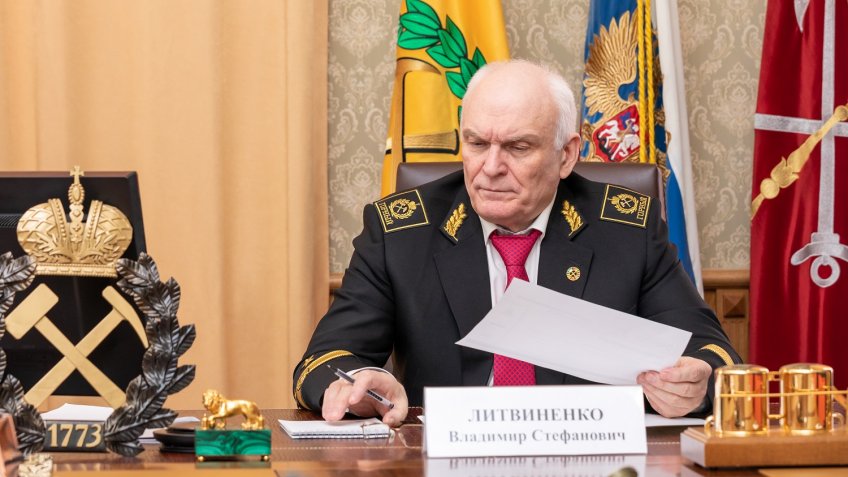
From the point of view of a naturalist in the field of minerals, I can point out that there is a misconception in society regarding the understanding of the role of the state in the uncertainties of today's economy. That is, the belief that the government, under difficult geopolitical conditions, will not look for "ideal" options for the development of the economy, but will be guided by the fact that it should play the leading role in a mobilising economy, where the importance of government is predominant. It is supposed to concentrate resources in that part of the economic system that determines the response to the threats hanging over society. This should be achieved, among other things, by withdrawing them from other, less important parts of the economy at this stage.
The negative impact of geopolitical constraints on the sustainability of our companies as participants in the global market and economy as a whole, as well as the existence of threats to the existence of our state as an integral system, has been evident over recent years. Without going into an analysis of the government's actions in the current situation and its response to the obvious geopolitical challenges, it should only be noted that our military industrial complex and the army have demonstrated the ability to counteract these challenges.
State regulators of the mineral sector have long been preoccupied with finding and drawing up "ideal" forecasts aimed at solving such ephemeral problems of the world economy as the elimination of engineering education, "hydrocarbon control", hydrogen economy, digitalisation, "artificial intelligence" and others. At the same time, the adherents of liberal economics downplayed the importance of the mineral and raw material potential as a serious geopolitical resource.
The ideology of economic liberalism, imposed on our country at the end of the twentieth century, is still welcomed by part of our society, which advocates minimal government interference in the economy, rejecting government regulation of the economy. This ideology preaches complete freedom for individuals, leaving the government to regulate antitrust and correct information. State regulation in this case is replaced by the notion of intervention.
Unfortunately, even under present conditions, the transition to a mobilising economy is held back by proponents of economic liberalism. As superstructures of society, they affect intangible factors such as moral, ethical and psychological factors. And yet they lie at the heart of mobilisation and the ability of a country to achieve its economic objectives with the resources available.
Minerals are essential to the development of any country today. The geopolitical struggle of the countries of the global leadership coalition has shown that the outcome of their targeted diplomacy is the provision of free access to minerals. Primarily hydrocarbons, rare earths, non-ferrous metals, etc., of which they are poor.
The volatility and price rises that we are witnessing on commodity markets give every reason to talk about the world economy entering a phase of acute crisis. What are the most significant problems? First, the global nexus of energy, food, water and prosperity is breaking down. Secondly, higher prices for essential minerals provoke structural inflation in the world due to imbalanced growth of some industries and segments of the global economy.
Mineral resources are natural capital, which can only be converted into human, social and physical capital if the entire process of handling them is professionally regulated by the government. The government, regulating the mineral resource complex (MRC), must determine which resources, when and how will be developed, extracted, consumed, recycled in the interests of the state on the basis of a balancing policy, where the ratio of extraction and growth of reserves is kept in the range 1:(1.2 ÷ 1.6). It should treat the country's mineral resource potential as an element of transnational management within the jurisdictional and sectoral capabilities of the state, using laws, rules and regulations to regulate and minimising its involvement in production.
Only a single centre of governance and personal responsibility in government can ensure the creation of long technological chains in an economy oriented towards direct consumption goods produced from minerals. And to create the conditions for strengthening our presence on the raw material markets as an equal participant in the global economy.
The urgency and relevance of updating Russia's resource policy are caused by growing geopolitical risks, the critical level of depletion of high-quality, competitive hydrocarbon and solid mineral reserves. It is also necessary to take into account the depletion of developed reserves, their systematic reassessment due to changes in technological capabilities, rising costs, deteriorating mining and infrastructure conditions for their localisation, and price cycles. The mineral resource policy and strategy must take into account the country's social problems because 64% of Russia's territory lies in the northern latitudes. The only opportunity for socio-economic development of the northern territories is a highly liquid mineral resource base (MRB), heat and energy.
The raw material, enclave type of socio-economic development of the northern territories has no alternative. Unfortunately, these crucial factors are not reflected in the country's mineral policy. Realism and professionalism of assessments of the situation and responses to these challenges are the necessary conditions for sustainable development of the country, whose economy critically depends on the state of affairs of MBCs and SMEs.
Underestimation of the real situation, silence of the growing problems with quality, sufficiency of MSB, its competitiveness, potential and possibility (geological, professional, technological, technical) of its reproduction threatens the socio-economic stability of the society, and disorienting the state target-setting in terms of the conducted policy of energy-heat-resource-saving of GDP.
Vladimir Litvinenko, Rector of St. Petersburg Mining University
Source: Rossiyskaya Gazeta.